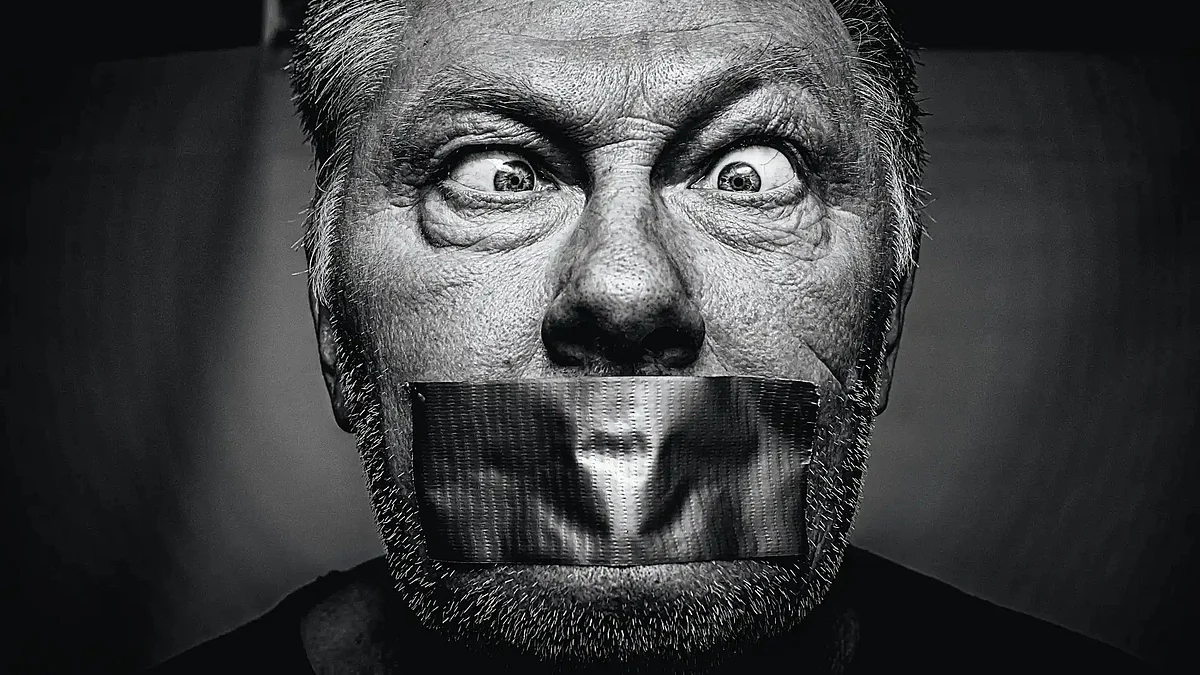By Ana Radelat,House Speaker Mike
Copyright minnpost

WASHINGTON — The nation inched closer to a government shutdown this week after Democratic leaders in the U.S. House and Senate rejected a stopgap funding proposal released by House Speaker Mike Johnson because the measure does not contain any Democratic priorities.
If Congress does not pass a funding bill, the government will close down after Sept. 30 when the legislation currently funding the federal government expires.
But as the clock ticks toward that deadline, there is no agreement on how to avoid the shuttering of the federal government.
Johnson has scheduled a Friday vote for the stop-gap measure, called a continuing resolution, or CR. But there’s no guarantee it will pass since he can only lose three Republican votes and Democrats are united in opposition.
Democrats want an extension of subsidies that were boosted during the pandemic to help people purchase health insurance policies under the Affordable Care Act. Those subsidies lowered insurance premiums for 90,000 Minnesotans. But they expire at the end of the year.
Related: 90,000 Minnesotans face big health insurance premium hikes without congressional funding action
They are also seeking other increases in funding for health care, an issue that Democrats plan to run on as they hope to make gains in midterm elections next year.
“The House Republicans-only spending bill fails to meet the needs of the American people and does nothing to stop the looming healthcare crisis,” said Senate Minority Leader Chuck Schumer and House Minority Leader Hakeem Jeffries in a joint statement.
Sen. Amy Klobuchar also chided her GOP colleagues.
“Because the president and Republicans are allowing health care tax credits for working Americans to expire, millions of people are about to be told that their health insurance premiums will increase by hundreds of dollars a month,” Klobuchar said.
On Wednesday, Democrats in the U.S. House and Senate introduced legislation that would extend the ACA subsidies and reverse cuts to Medicaid imposed by President Donald Trump’s One Big Beautiful Bill Act.
The Democratic bill, which isn’t expected to pass, would keep the federal government running until Oct. 1 and limit Trump’s ability to claw back funding that has been appropriated by Congress.
Meanwhile, Johnson’s short-term funding bill, which would keep the government funded until Nov. 21, does not include an extension of the ACA subsidies or any increase in funding levels, other than providing $88 million to bolster security for lawmakers and federal officials following the assassination of activist Charlie Kirk.
Although about a dozen Republican House members, most of them in “purple” districts, support extending the ACA subsidies, they are under extreme pressure to vote for Johnson’s continuing resolution.
If the CR passes the House, the drama will shift to the U.S. Senate, where Republicans would need seven Democratic votes to approve the spending bill. So far only one Democrat — Sen. John Fetterman of Pennsylvania — has said he will buck his party to back the GOP funding bill.
Schumer enraged Democrats in March, when Congress last voted for a short-term bill to keep the government running that gave Trump more discretion over spending than is allowed under the Constitution.
But this time Schumer is digging in. And, since Congress and the White House are under GOP control, Schumer said he is confident Democrats will not be blamed for a shutdown of government, citing Trump’s comments during an interview with Fox News that urged fellow Republicans not to “bother dealing” with Democrats.
St. Paul and ‘hate speech’
In the aftermath of the assassination of right-wing activist Charlie Kirk, U.S. Attorney General Pam Bondi created a stir this week by targeting “hate speech” with vague threats of prosecution.
Bondi made a distinction between “hate speech” and “free speech.” But that runs afoul of a landmark U.S. Supreme Court case decided in 1992 that centered on a St. Paul resolution.
The unanimous decision in R.A.V. v. City of St. Paul made clear that what some might view as “hate speech” is protected by the First Amendment.
The City of St. Paul had passed an ordinance that made it a crime to display a symbol, object or graffiti that one knew or had reason to know would arouse anger, alarm or resentment based on race, color, creed, religion or gender.
Then several teenagers allegedly burned a crudely fashioned cross on a Black family’s lawn.
Related: D.C. Memo: Kirk shooting ignites partisan rancor in Washington
The high court held that St. Paul’s ordinance was invalid because it was overly broad and “impermissibly content based” in violation of the First Amendment’s free speech clause.
The police charged one of the teens under St. Paul’s ordinance. A trial court dismissed the charges. The State Supreme Court reversed that court’s decision and appealed to the U.S. Supreme Court.
The First Amendment prevents the government from punishing speech and expressive conduct because it disapproves of the ideas expressed, the justices said.
The opinion, which united conservative and liberal justices, said the government has no authority “to license one side of a debate to fight freestyle while requiring the other to follow the Marquis of Queensbury Rules.”
After her remarks drew criticism from across the political spectrum, Bondi walked them back.
She said her intent was “to speak about threats of violence that individuals incite against others.”
However, in an interview with Fox News, Bondi said the U.S. Justice Department might prosecute Office Depot workers in Michigan for unlawful discrimination because they refused to print posters for a Kirk memorial. One of those workers was fired.
“Businesses cannot discriminate,” Bondi said. “If you wanna go in and print posters with Charlie’s pictures on them for a vigil, you have to let them do that. We can prosecute you for that,” Bondi said.
Meanwhile, Rep. Ilhan Omar, D-5th District, was also swept up in the Republican furor over criticism of Kirk when GOP lawmakers, unsuccessfully, tried to censure the progressive Democrat for comments she made about Kirk.
In case you missed it:
State government reporter Matthew Blake revealed that Minnesota “appears light years away from passing stricter gun laws.” The reason? Republicans on a Senate Gun Violence Prevention Working Group made clear that they do not want to work with DFL lawmakers on gun legislation, Blake wrote.
Meanwhile, reporter Brian Arola wrote about a new report that determined that — perhaps outside the issue of guns — bipartisanship grew in the closely divided state Legislature this year.
And we looked at how Minneapolis Mayor Jacob Frey and St. Paul Mayor Melvin Carter are getting ready in case their cities are targeted for a Trump-led federal incursion like the one threatening other Democratic cities.
Your questions and comments
A reader noted that Charlie Kirk’s tragic death has served as a “rallying cry” for the nation’s conservatives.
“In my limited knowledge of the political stage and its minor actors, I like most Americans knew little of this Kirk. And certainly, he was not (part of the) mainstream media conversation or reporting until this assassination. Kirk was apparently very popular within certain MAGA or conservative circles but was little known otherwise,” the reader wrote. “However, (Kirk’s assassination) serves as not only a distraction from President Trump’s failed policies and Epstein files but as a rallying cry for MAGA to continue its authoritarian agenda with increased vigor and impunity all in the name of retribution and safety. “
Please keep your comments, and any questions, coming. I’ll try my best to respond. Please contact me at aradelat@minnpost.com.



